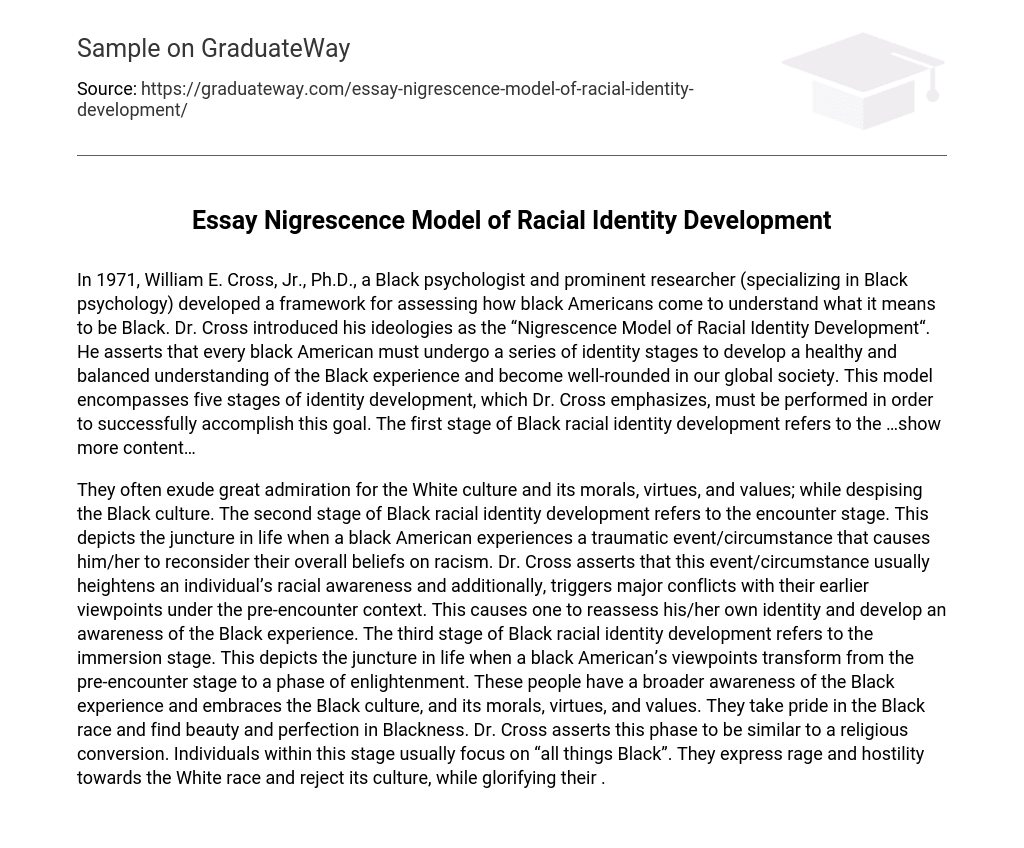In 1971, William E. Cross, Jr., Ph.D., a Black psychologist and prominent researcher (specializing in Black psychology) developed a framework for assessing how black Americans come to understand what it means to be Black. Dr. Cross introduced his ideologies as the “Nigrescence Model of Racial Identity Development“. He asserts that every black American must undergo a series of identity stages to develop a healthy and balanced understanding of the Black experience and become well-rounded in our global society. This model encompasses five stages of identity development, which Dr. Cross emphasizes, must be performed in order to successfully accomplish this goal. The first stage of Black racial identity development refers to the … show more content…
The text emphasizes the admiration shown by some individuals towards White culture, morals, virtues, and values, while expressing dislike towards Black culture. According to Dr. Cross, the second stage of Black racial identity development is known as the encounter stage. This stage represents a moment in a black American’s life when they go through a traumatic event or circumstance that prompts them to reevaluate their beliefs regarding racism. This event or circumstance often leads to an increased racial awareness and conflicts with their previous perspectives on race prior to the encounter. As a result, individuals are compelled to reflect on their own identity and gain an understanding of the Black experience.
The immersion stage is the third stage in Black racial identity development. It is a time in a black American’s life when their perspectives shift from the pre-encounter stage to a state of enlightenment. During this stage, individuals have a broader understanding of the Black experience and fully embrace Black culture, including its morals, virtues, and values. They take pride in being Black and appreciate the beauty and perfection of Blackness. Dr. Cross describes this phase as similar to a religious conversion. People in this stage typically focus on all things related to Blackness. They may express anger and hostility towards the White race and reject its culture, while glorifying their own.





